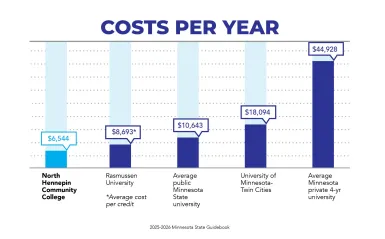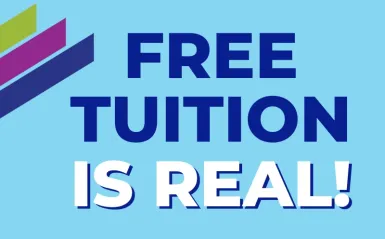Apply for Free
During the month of October, you can apply for free using promo code: CKM25
Transfer Options
The Engineering Broad Field AS degree will transfer to any of the following Minnesota State universities:
Paying For College
NHCC's tuition is among the most affordable in Minnesota.
Financial Aid
- Scholarships are money you don't have to repay
- Grants are money you don't have to repay
Free College Tuition
The North Star Promise scholarship program provides free college tuition to eligible students. Find out if you might be eligible.
Be Bold: Break the Mold Program Application Open
Be Bold Break the Mold (BBBM) is a professional mentorship program that supports female identifying students entering high-demand careers where women are underrepresented. Learn more & apply by 8/30/24.
Program Roadmaps
Program roadmaps provide students with a guide to understand the recommended course sequence to complete their degree.
Get Started
If you're ready to get started, apply to NHCC. If you'd like to learn more, you can visit campus or request information.


